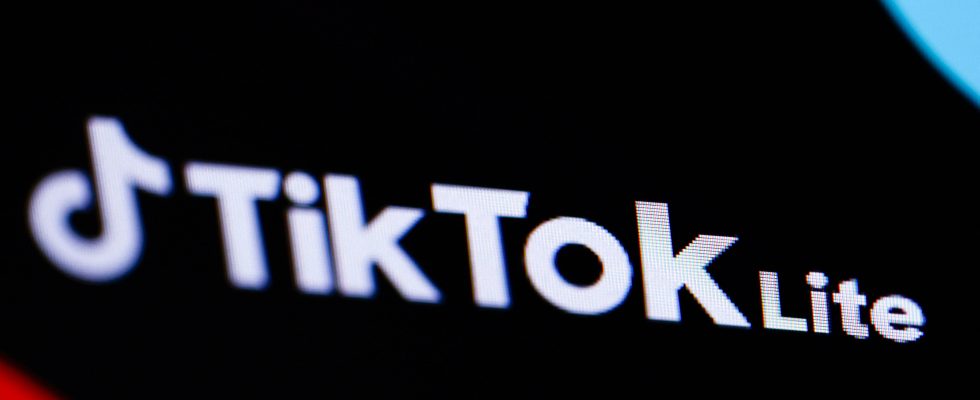Earn money by connecting to TikTok, scrolling through videos or liking them. The concept may seem aberrant, and very quickly worrying: it is nevertheless TikTok Lite, the new application put online since the end of March in France and Spain by the Chinese giant ByteDance.
On the interface, the application is almost identical to TikTok in every way, including the same uninterrupted flow of videos to “scroll”. But very quickly, TikTok Lite, notably presented as a version that consumes less data and storage space, reveals its true objective. We quickly discover the “rewards” tab, with a system of virtual coins to accumulate, similar to those of certain mobile video games, which can be earned in different ways: 300 tokens for registration, 4,500 additional if you connect daily for ten days, 4,200 coins when you watch 25 minutes of videos, or 150 tokens if you follow three creators or like three videos, depending on Le Figaro. 10,000 coins being equivalent to… one euro.
These coins can then be exchanged for vouchers or gift certificates on different sites, while for the moment, only Amazon and PayPal are involved. This money can also be used to reward the network’s content creators. social, through virtual gifts.
“This is an extremely dangerous message sent”
Already launched in South Korea and Japan since the end of 2023, TikTok Lite is actually in the testing phase in two Western countries: France and Spain. Hence a fairly discreet launch, at the end of March, without real promotion or communication campaign. Despite everything, the application is already in eighth place in the Apple Store application ranking, four places ahead of the original TikTok application, or even ahead of other social networks like WhatsApp, Instagram or YouTube. Although for the moment, Apple does not yet allow the financial rewards system, for the moment only available on Android. “Simple question of implementation time”, explained a spokesperson for TikTok France to Figaro Start of the week.
But it didn’t take long for the message sent by this new version of TikTok to cause great concern. “This directly induces a relationship between time spent and money. It is an extremely dangerous message sent,” the president of the e-Enfance association, Justine Atlan, expressed alarm at the RMC microphone. Establishing a financial incentive for overconsumption of content seems to go completely against recommendations for caution regarding screen time and addictive behavior linked to social networks, particularly among young people.
TikTok, for its part, defended itself, arguing that “the maximum rewarded video viewing time is 60 to 85 minutes” per day. A limit far from being sufficient to reassure the Secretary of State for Digital Affairs, Marina Ferrari, who declared on the social network “opposite of the principles of the digital society that we want to build”.
Reserved for adults, really?
This new application, very similar to a gambling game, at least in its addictive nature, also poses another problem: the age limit of its users. TikTok directly protected itself from any attack, by ensuring that the remuneration system would be reserved for those over 18. To do this, the social network intends to carry out verifications, whether through an identity card, a facial photo or a bank transaction.
But the ways of subverting these processes already seem simple, and minors already have no difficulty in passing themselves off as older than they are on the Internet and social networks. Thus, a study by the Heaven agency published in 2023 demonstrated that 71% of French children aged 11-12 (excluding YouTube) had an account on at least one social network and published content there regularly, while these are supposed to be prohibited for children under 13.
Above all, the word of the Chinese giant ByteDance seems particularly difficult to believe in this matter, while it is currently being questioned by an investigation by the European Commission for failings in the protection of minors and an insufficient verification policy. of age. “We are all a little dismayed by this situation. We have the feeling that it is almost an ultimate provocation on the part of TikTok which has been in very danger lately, being mistreated in the United States, with bans looming over the above him”, reacted the president of the e-Enfance association, Justine Atlan. Provocation, or perhaps above all a strategy to increasingly retain its consumers and… feed its obscure algorithm. Once again, TikTok is pushing the boundaries a little further.
